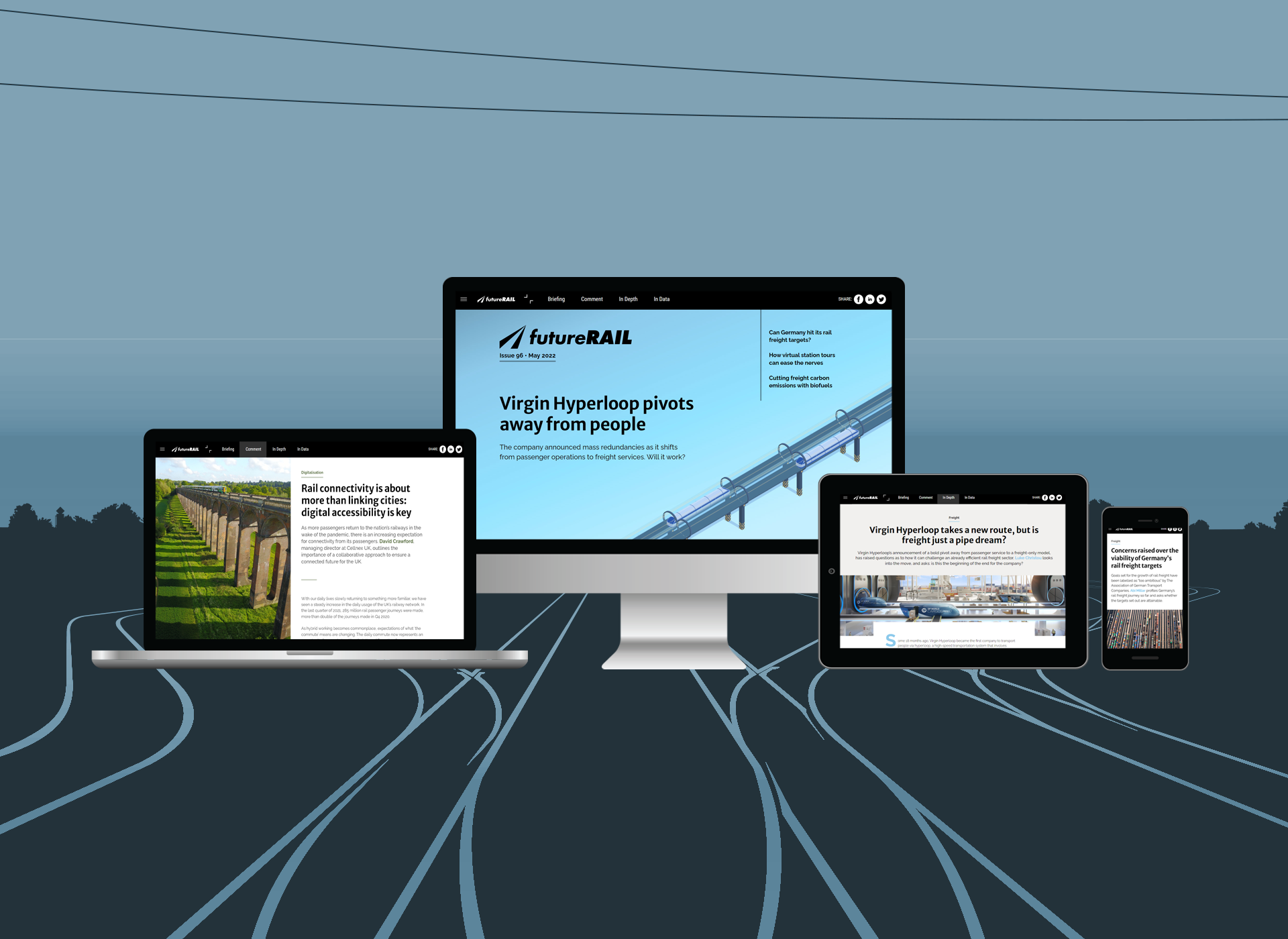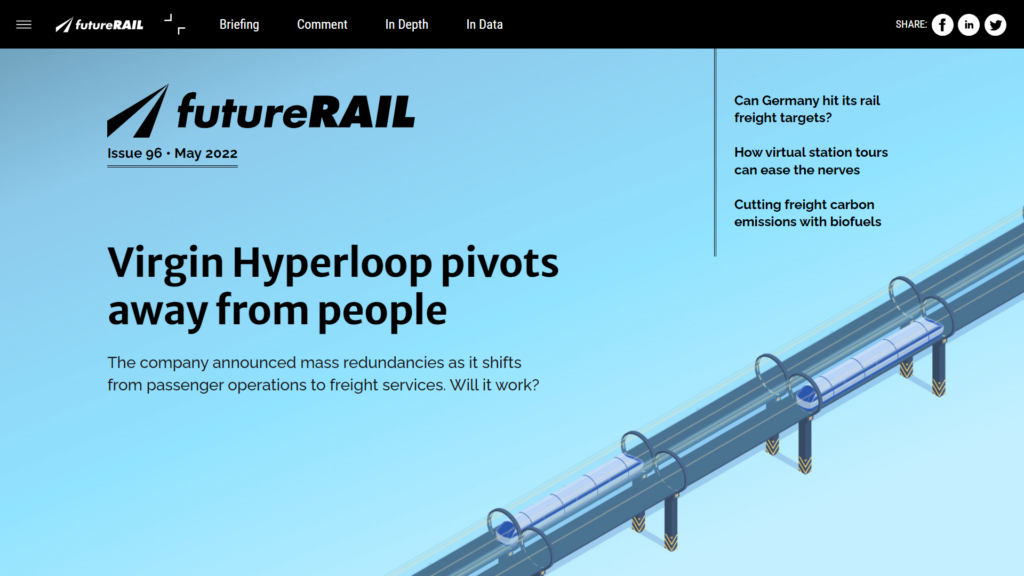
In this issue of Future Rail, we consider rail freight. Though much of the international supply chain is dominated by shipping, railways have a vital role in the movement of goods. In the UK alone, rail freight contributes £870m to the economy – but it supports an output of £5.9bn. And that’s a rail freight network that is, in my opinion, under-appreciated and not being used to its full potential.
Whether you are on desktop, tablet, or smartphone, you can read the magazine for free online.
In our cover story, we take a look at the news that Virgin Hyperloop has taken the bold decision to drop passenger operations and focus solely on developing the technology for cargo services – a move that came with considerable redundancies.
In Europe, concerns have been raised over the viability of Rail freight targets set in Germany, with many trade associations and industry bodies warning that the goals are unattainable. We learn why the numbers are being called ‘too ambitious’.
Elsewhere, we profile Wabtec’s new sustainable biofuel trials for freight in the US, find out why the GCC railway project really needs to go ahead, look at how virtual station tours can help accessibility, and learn where the rail industry should invest to best utilise its finances.
For this, and more, read on. You can also follow us @FutureRail_Mag.

Discover B2B Marketing That Performs
Combine business intelligence and editorial excellence to reach engaged professionals across 36 leading media platforms.
Peter Nilson, editor

In this issue
Virgin Hyperloop takes a new route, but is freight just a pipe dream?
Virgin Hyperloop’s announcement of a bold pivot away from passenger service to a freight-only model, has raised questions as to how it can challenge an already efficient rail freight sector. Luke Christou looks into the move, and asks: is this the beginning of the end for the company?
How virtual station tours can ease passengers’ nerves
Travellers can now take a virtual tour of Stansted Airport rail station, in a project that aims to ease the anxiety of passengers and improve accessibility by providing better tools to plan the interchange from the train to the terminal in advance. Jasleen Mann finds out more.
Concerns raised over the viability of Germany’s rail freight targets
Goals set for the growth of rail freight have been labelled as “too ambitious” by The Association of German Transport Companies. Abi Millar profiles Germany’s rail freight journey so far and asks whether the targets set out are attainable.

US Tariffs are shifting - will you react or anticipate?
Don’t let policy changes catch you off guard. Stay proactive with real-time data and expert analysis.
By GlobalDataCutting freight carbon emissions with biofuels
Wabtec and BNSF are collaborating on a biofuels project with the aim of reducing carbon intensity for Wabtec locomotives. Jasleen Mann learns more about the project, aimed at quantifying the impact of alternative fuels on emissions, durability, and performance.
The GCC railway really should be built (but might not be)
A rail network connecting all states in the GCC would be a boon for the regional economy, but as Jon Whiteaker argues, it is likely to be stymied by those states less effective at building infrastructure.
Invest for success: assisting rail funding
With the US railway industry receiving billions in funding, where should the industry invest to best utilise this finance? Frankie Youd speaks to Didem Cataloglu, CEO of Direxyon Technologies, to find out.
Next issue preview
West Croydon overground station in South London, UK, is one of 26 railway stations around the city to become home to an ‘Energy Garden’. These installations include planters with plants, flowers, ferns, and s0lar panels.
Energy Garden’s first solar co-operative aims to generate solar power using PV arrays on train depots – creating an intersection between biodiversity and energy by using vacant spaces in transport infrastructure. In our next issue, we explore the project, looking at the consequences of broader adoption.
Would you like to be notified when a new issue of Future Rail is out? Sign up for email alerts here!
We will only use your email address to let you know when a new issue is available. Future Rail is published bi-monthly.



